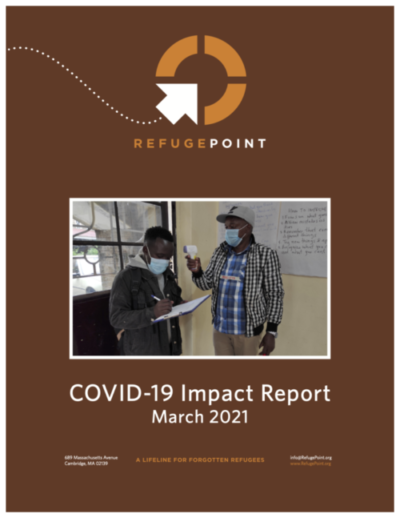The COVID-19 pandemic has brought a global loss of lives and livelihoods, from which the world is only now beginning to recover. In Kenya, the pandemic, and related restrictions on movement, have had a devastating impact on the lives of urban refugees, many of whom depend upon informal work for survival. In an effort to better understand the impact of the pandemic on refugees and to ensure our programming was adapting appropriately to continue to help refugees on their journey towards self-reliance, we interviewed current and former refugee clients to discuss how they had been affected by the COVID-19 pandemic.
We surveyed and interviewed 223 families from our Urban Refugee Protection Program (URPP) in Nairobi, Kenya and then reviewed the data, comparing refugee households that received comprehensive support from RefugePoint during the pandemic (“active core clients”) with “graduated clients”, meaning refugees who had achieved a level of self-reliance prior to the pandemic and no longer needed our active support.
Overall, our clients shared that they had, unsurprisingly, been hit hard by the pandemic – not only in terms of their ability to engage in livelihoods and generate income, but also in terms of their health, debt, safety and security, and housing.
We learned that our active core clients were better able to meet their basic needs, thanks to support they received from RefugePoint and partner organizations, but were also more likely to be suffering from long-term health issues, which affected household stability and susceptibility to the virus. The graduated clients with whom we spoke were more likely to have engaged in income-generating activities but were also more likely to have experienced increased debt, food insecurity, and housing instability.
This report provides insights into how organizations that support refugees, like RefugePoint, can adapt during crises and assist refugees to withstand the shocks of the COVID-19 pandemic, and continue on their journey to self-reliance.
